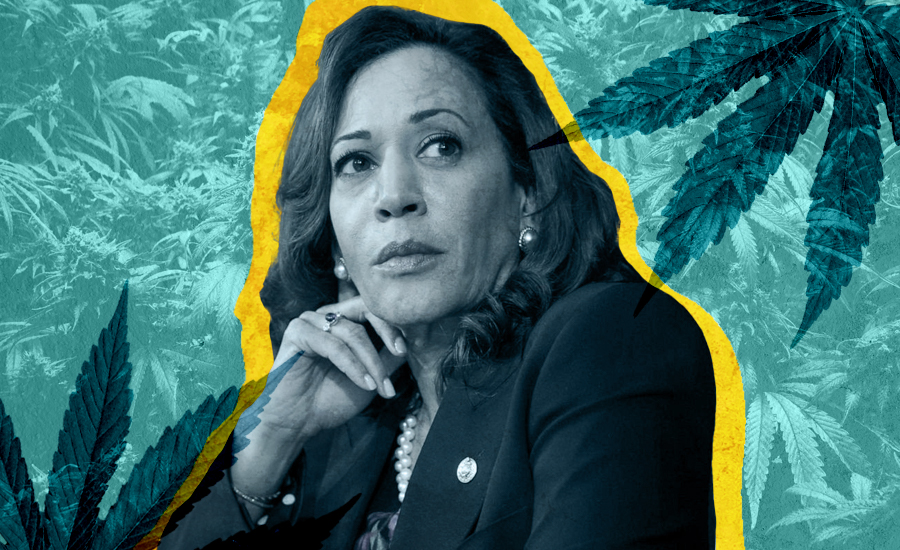In her acceptance speech for the Democratic nomination for vice president, Kamala Harris reiterated her call for equal justice and the end of structural racism. In the past year, Harris has swiftly embraced a role as a leader on cannabis legalization emphasizing its effectiveness in achieving these goals. However, with her newly minted status as Joe Biden’s VP nominee, Harris has already begun to walk back some of her own policies to embrace Biden’s position of decriminalization.
At this moment, with a Democratic ticket openly campaigning for decriminalization, as an industry, we must begin to consider whether this will help us, or if the unknowns of decriminalization and continuing the state-by-state market legalization model will only create more uncertainty.
We will likely find that decriminalization is the best short-term option for the current industry. It will allow us to begin to combat some of the lingering racial inequities in our society and allow states with existing legal markets to continue developing. But, decriminalization under Biden/Harris would do little to create long-term stability in the industry.
Kamala Harris Cannabis Decriminalization and Racial Equity
 In more recent years, Harris has frequently addressed the societal benefits of the widespread acceptance of cannabis and tied them into the core message supporting legalization. Harris also specifically included social equity measures in the MORE Act, which she introduced in the Senate in July 2019 to decriminalize cannabis. The bill focused on offering assistance to individuals and businesses who were impacted by the War on Drugs. Further, she co-sponsored Senator Cory Booker’s (D-NJ) Marijuana Justice Act (MJA), which calls for decriminalization and the creation of a Community Investment Fund to assist similarly affected areas. With Biden and Harris’ distinct histories with cannabis, it would be unlikely for her or the party to support any call for decriminalization that did not include these types of community support measures.
In more recent years, Harris has frequently addressed the societal benefits of the widespread acceptance of cannabis and tied them into the core message supporting legalization. Harris also specifically included social equity measures in the MORE Act, which she introduced in the Senate in July 2019 to decriminalize cannabis. The bill focused on offering assistance to individuals and businesses who were impacted by the War on Drugs. Further, she co-sponsored Senator Cory Booker’s (D-NJ) Marijuana Justice Act (MJA), which calls for decriminalization and the creation of a Community Investment Fund to assist similarly affected areas. With Biden and Harris’ distinct histories with cannabis, it would be unlikely for her or the party to support any call for decriminalization that did not include these types of community support measures.
The Biden/Harris ticket, as part of their position on decriminalization, is committed to expunging criminal records and supporting states in the creation of their own rules and regulations. Although this position still allows states to keep cannabis use illegal, the Biden/Harris ticket may use other methods to encourage states to pass legalization on their own, rather than mandate it at the federal level.
Decriminalization with community investment measures and expungement of criminal records would begin to address some of the racial inequalities created by the War on Drugs. In this moment, the relationship between cannabis and racial equity needs to be openly acknowledged, as it will be a pivotal point in any conversation regarding the future of our industry.
Kamala Harris’ Cannabis Switch to Decriminalization and How It Benefits Established Companies
 Decriminalization without legalization will allow the existing industry to continue to progress and grow without facing additional regulations and the inevitable hurdles that accompany the emergence of a new federal market.
Decriminalization without legalization will allow the existing industry to continue to progress and grow without facing additional regulations and the inevitable hurdles that accompany the emergence of a new federal market.
Just as we’ve seen with the legalization of hemp in 2018, regulations and even provisional rules can take years to finalize and implement. This leaves industries in a state of flux, often inhibiting investment and proactive steps until the future of the market is more certain. In the case of cannabis, with its complex history and seemingly unshakeable stigma, the regulations that would come with federal legalization will take even longer to draft and implement.
In addition to the social benefits of decriminalization, there are short term monetary benefits. The Biden/Harris ticket announced that in addition to decriminalization, they would permit states to create their own rules governing cannabis. This policy allows existing markets to continue to operate, grow, and progress without any major interruptions. On the other hand, federal legalization would come with sweeping new regulations, and a potential overhaul of some state’s current markets, delaying growth and competition.
Further, decriminalization helps combat the stigma around cannabis and the industry can capitalize on this as an opportunity to expand on the existing customer base. The companies that would be able to benefit the most are those that already operate in multiple states and understand the complexities of navigating differing regulatory schemes. Although not a perfect solution, decriminalization provides numerous social and economic benefits.
Kamala Harris on Postponing Legalization
Despite the indisputable benefits of decriminalization, other elected officials have previously spoken out about how legalization should be the only logical next step. While decriminalization provides a short-term solution a majority of Americans now publicly support legalization, giving it an air of inevitability.

By allowing new state markets to emerge and existing state markets to grow before federal legalization will likely create larger hurdles for companies in the long run. When federal regulations of cannabis do emerge, state markets and companies that are already established will be forced to invest time and resources to reconcile their current operations with those future federal regulations. Although companies may appreciate the time and resources saved now, the longer legalization is put off, the more significant these costs will likely be.
Though unlikely, the Biden/Harris ticket should think beyond their current campaign and acknowledge the long-term market implications of decriminalization vs. legalization. In the meantime, while we as an industry support cannabis decriminalization, we must begin preparing for the inevitable transition to legalization, when it comes.
